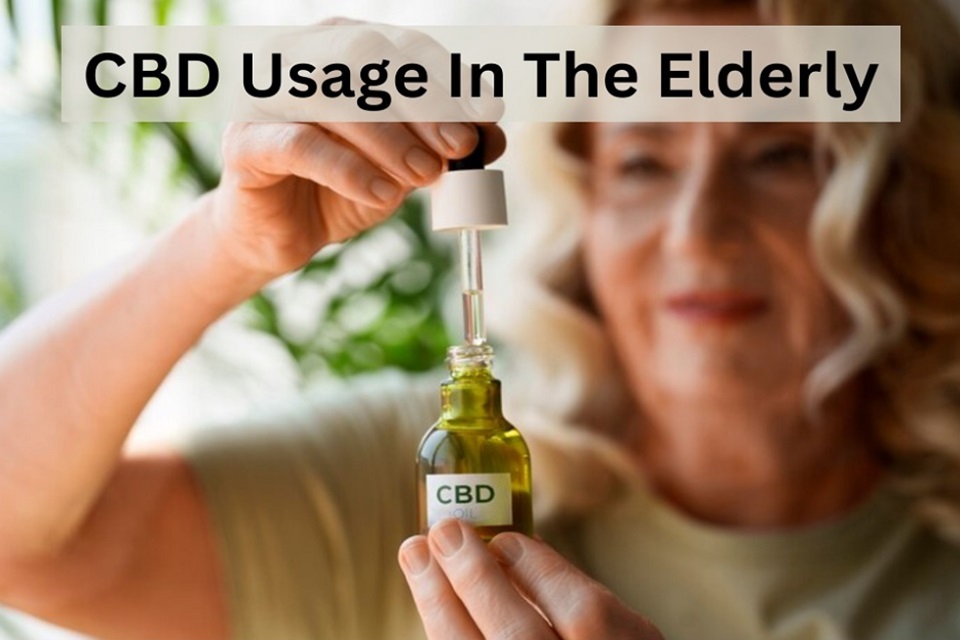CBD Usage In The Elderly: Essential Information
In recent years, CBD has garnered significant attention as a potential remedy for various health issues, particularly among the elderly. CBD, derived from the cannabis plant, presents a natural alternative without the intoxicating effects of THC. This article aims to delve into the essential information surrounding CBD usage among seniors, highlighting its benefits, considerations, and potential impact on their health and well-being.
CBD For Senior Health
CBD, derived from the cannabis plant, has gained interest in senior health due to its non-intoxicating properties. It interacts with the body’s endocannabinoid system, which regulates mood, sleep, appetite, and pain sensation. CBD is a potential natural remedy for addressing health concerns like chronic pain, sleep disturbances, anxiety, and inflammation. Its non-intoxicating nature makes it a safer option for older adults. CBD’s analgesic properties may help manage chronic pain, improve sleep quality, alleviate anxiety and stress, and reduce inflammation linked to age-related conditions. However, it’s crucial for seniors to consult with healthcare advisorbefore incorporating CBD into their wellness routine, especially if they are taking other medications or have underlying health conditions.
Benefits Of CBD For The Elderly
Chronic Pain Management: CBD has shown potential in alleviating chronic pain commonly experienced by the elderly, including arthritis, neuropathy, and fibromyalgia.
Improved Sleep Quality: Seniors often struggle with sleep disorders, such as insomnia, but CBD’s sedative effects can help them fall asleep faster and stay asleep for longer periods, enhancing overall sleep quality.
Anxiety Reduction: CBD has been studied for its anxiolytic properties, offering relief from anxiety and stress, which are prevalent among older adults due to life changes, loneliness, or health concerns.
Inflammation Relief: CBD’s anti-inflammatory properties can help reduce inflammation associated with conditions like arthritis, promoting joint health and enhancing mobility in seniors.
Neuroprotective Potential: Early research suggests that CBD may have neuroprotective properties, potentially slowing down the progression of neurodegenerative disorders such as Alzheimer’s disease and Parkinson’s disease.
Minimal Side Effects: CBD is typically well-received by elders with minimal side effects such as dry mouth, fatigue, and changes in appetite, particularly when used in appropriate dosages.
Non-Intoxicating Nature: Unlike THC, CBD does not produce psychoactive effects or a “high,” making it a safe option for seniors who may be sensitive to the intoxicating effects of cannabis.
Versatile Administration: CBD is available in various forms, including oils, tinctures, capsules, and topicals, providing seniors with flexibility in choosing the most suitable option based on their preferences and needs.
Enhanced Overall Well-Being: By addressing various health concerns such as pain, sleep disturbances, anxiety, and inflammation, CBD can contribute to improved overall well-being and quality of life for seniors.
Navigating Dosage & Administration
Determining the right dosage and administration method is vital when considering CBD for seniors. Starting with a low dose and gradually increasing it while closely monitoring effects is advisable. Seeking guidance from healthcare advisorexperienced in CBD use can ensure safe and effective administration.
Legal Considerations & Regulations
The legality of CBD varies by region, necessitating awareness of local regulations and adherence to legal requirements. Understanding the legal status of CBD products is crucial to ensure compliance with applicable laws and access to safe and lawful products.
Choosing High-Quality CBD Products
Selecting high-quality CBD products is paramount for seniors’ safety and efficacy. Look for products that undergo third-party testing for purity and potency, and prioritize organically grown hemp to minimize exposure to harmful substances.
Final Words
In conclusion, CBD presents itself as a promising natural option for addressing various health concerns among seniors. Understanding its potential benefits, along with considerations and proper usage, can empower older adults to make informed decisions about their well-being. However, it’s crucial to approach CBD use cautiously, seeking guidance from healthcare advisorand adhering to dosage guidelines. Ultimately, the decision to try CBD should be made based on individual needs and preferences, with careful consideration of potential risks and benefits.
FAQs
Can CBD interact with medications commonly prescribed to seniors?
Yes, CBD may interact with certain medications, emphasizing the importance of consulting healthcare advisorbefore use.
What forms of CBD are available for seniors?
CBD is available in various forms, including oils, tinctures, capsules, and topicals, offering seniors flexibility in choosing the most suitable option.
Is CBD legal for seniors to use?
The legal status of CBD varies by region, so seniors should be aware of local regulations and ensure compliance with applicable laws.
Continue reading





